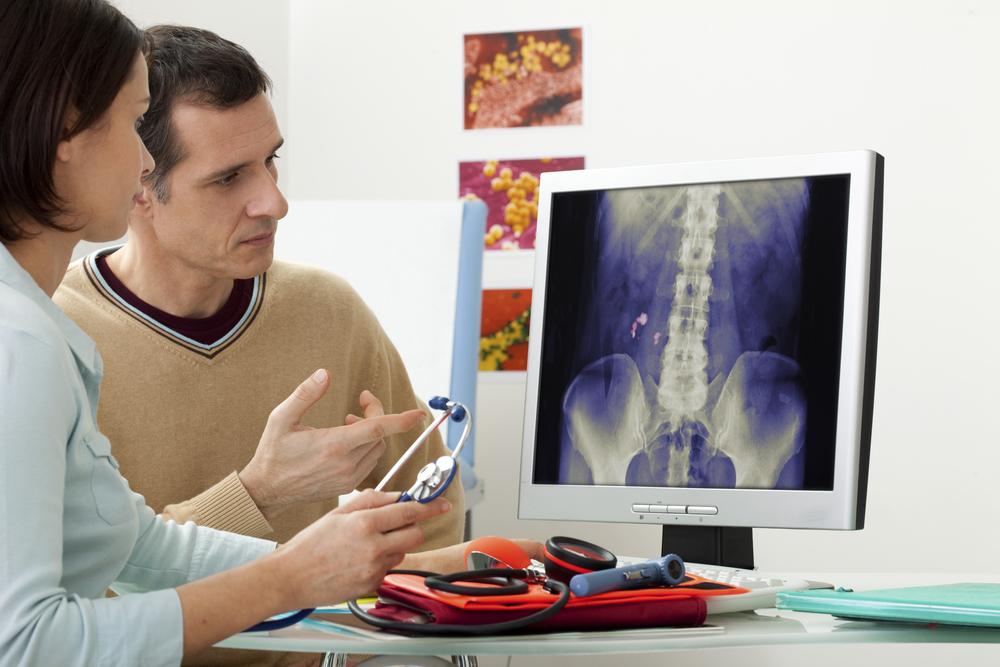Identification And Treatment Of Kidney Stones

Identification and treatment of kidney stones
A kidney stone is formed when there is a gradual buildup of material in the kidney through substances in the urine. It has a plethora of causes and can affect any part of the urinary tract from the kidneys to the bladder. The stones can be as small as grains of sand or as big as pearls. Most kidney stones pass out of the body without needing a doctor’s help while some require surgery, as they get stuck in the urinary tract and cause a lot of pain. In this article, you can find out more about the causes of kidney stones, symptoms, kidney stones treatment options, and home remedies.
What causes kidney stones?
Kidney stones are formed when the concentration of crystal forming minerals such as calcium,oxalate, and uric acid is higher than the fluid content making it easy for the crystals to stick together and form stones. Some reasons why you may be more likely to have kidney stones are:
- Inadequate intake of water – Our body requires an adequate amount of water to dilute uric acid. In its absence, the urine becomes more acidic and contributes to the formation of kidney stones.
- Diet – Intake of high-oxalate foods such as spinach, rhubarb, grits, and bran cereal increase the risk of developing kidney stones.
- Sodium – Found in salt, it can cause several types of kidney stones. Therefore, limit your intake of salty snacks, canned foods, processed foods, and packaged meats.
- Hypercalciuria – It is a condition when there is high calcium in the urine, which may form calcium oxalate or calcium phosphate kidney stones.
- Gut Problems – Those with gut problems are more prone to developing kidney stones.
- Obesity – Obesity is another causal factor of kidney stones.
- Heredity – Some families have a history of developing kidney stones.
- Medications – Medications, such as diuretics, anti-seizure drugs, and calcium-based antacids, also increase one’s risk of developing kidney stones.
- Chronic diseases – Diabetes, hypertension, and other chronic diseases are known to increase the risk of developing kidney stones.
What are the symptoms of kidney stones?
The following are the symptoms knowing which can help you get the ideal and on-time kidney stones treatment –
- Urinary urgency – Feeling the need to pee more often than normal is termed as urinary urgency, which is one of the symptoms of kidney stones. It indicates that the stone has moved down into the lower part of the urinary tract.
- Painful and burning sensation – When you start feeling pain and a burning sensation while urinating, it means the kidney stone has reached the junction between the bladder and ureter.
- Back, belly, or side pain – The pain occurs when the stone gets stuck in the narrow ureter and is often unbearable. The pain starts suddenly and changes location and intensity as the stone moves. Large stones are usually more painful than small stones but even a small stone can cause a big blockage and pain.
- Blood in the urine – It’s a common symptom in those suffering from urinary tract stones. The blood can be brown, pink, or red in color and sometimes can be difficult to see without a microscope.
- Cloudy or smelly urine – Cloudy or foul-smelling urine can be a sign of an infection in the kidneys or kidney stones.
- Fever and Chills – They are indicative of a urinary tract infection and kidney stones.
What are some home remedies for dissolving kidney stones?
If you are wondering how to dissolve kidney stones, the following home remedies can help –
- Dandelion root
- Kidney beans
- Horsetail
- Pomegranate juice
- Organic celery
- Basil
- Apple cider vinegar
What are the treatment options for kidney stones?
The treatment for kidney stones depends on the severity and the size of the stones –
- Large stones – Extracorporeal shock wave lithotripsy (ESWL) is a treatment wherein sound waves are used for breaking stones into tiny pieces, which can then be excreted through the urine. Several surgeries are also performed to remove large stones from the kidney.
- Small Stones – Patients with small stones are usually advised to increase their intake of water and fluid. As even small stones can cause pain while passing, doctors recommended some mild pain relievers. Doctors also prescribe some medications that make stones pass more quickly and less painfully.
How can you prevent kidney stones?
- Stay hydrated
- Take less sodium
- Avoid high doses of vitamin C supplements
- Eat less animal protein
- Eat fewer oxalate-rich foods



